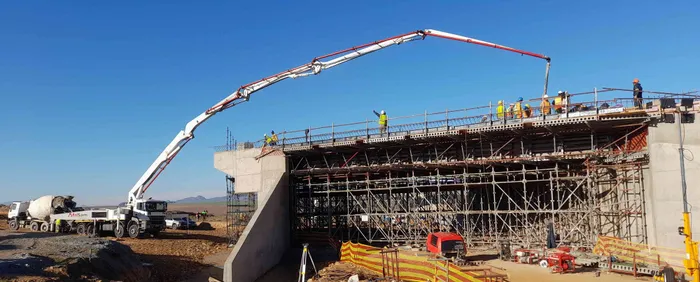IDPs should shape an economically enabled environment

Strategic infrastructure development remains a cornerstone of the effectiveness of an IDP.
Image: Supplied.
South Africa’s municipal planning season is in full stretch as local governments carve out their respective development plans for 2025/2026. A lot is a stake for the elected public officials, with just about a year to go until the next local government elections.
The Integrated Development Plan is an essential blueprint for a municipality that informs its overall framework for socio-economic development.
IDPs play a fundamental role to direct municipal councils on how to allocate resources as well as how political officials aim to aid development of their areas. They are prioritised given their ability to integrate a municipality’s strategic goal and force all relevant departments to be on the same page.
One can say that, over the past years if not decade, respective IDPs developed across South Africa’s municipalities simply look to address issues instead of creating new avenues that can foster local economic development.
This is evidenced by the several reports by the Auditor General highlighting how poor planning and coordination continues to be seen; poor implementation, weaknesses in infrastructure development and service delivery that further exacerbates the poor conditions of municipalities.
Interestingly IDPs still continue to be developed in full compliance. However, with processes still being ignored, this results in poor implementation and a failure to fulfil service delivery.
Infrastructure and basic services remain central towards creating a healthy environment for foreign investments. This is only possible through plans that can easily address problems faced in local government to diversify economic participation and facilitate job creation.
As South Africa finds way to enhance its environment for long term sustainable economic growth, IDPs need to be curated factoring key levers to facilitate enabling conditions for investments:
Infrastructure Development
Strategic infrastructure development remains a cornerstone of the effectiveness of an IDP. With more than R51 billion allocated, development plans need to be proactive blueprints that develop basic infrastructure projects instead of only addressing endless backlog of challenges.
As the current infrastructure struggles to cater for the current demands, more work is required to ensure that infrastructure development caters for road construction, waste management services, and most critically electricity and water supply. Development of local infrastructure requires to be aligned with national government’s aggressive infrastructure investment programmes set out in its Economic Reconstruction and Recovery Plan.
Business-Friendly Policies
Investor friendly policies facilitate easy access and entry of new businesses in municipalities.
The integration and implementation of inter-sectoral planning into IDPs, ensures that strategic plans such as Integrated Transport Plans (ITPs) and Integrated Waste Management Plans (IWMP) feed into the overall delivery of basic services that can encourage the private sector to play an impactful role in creating job opportunities and optimise local economic development.
The current Review of White Paper on Local Government is one of the most critical processes being conducted by government to improve the governance and how municipalities operate for sustainable development.
The White Paper will also be expected to address red tape, bureaucratic hurdles and administrative simplification in municipal processes, which will be able to make engagement between government and businesses much more efficient.
Public-Private Partnerships
The latest amendments to the municipal public-private partnership regulations showcase a growing need for effective collaborations amongst various stakeholders, more especially between government and private sector.
Amendments include limiting the ability of accounting officers to cancel successful PPP projects, providing greater security for investors.
This includes enhancing transparency and accountability in municipal PPP project management.
With the decline of new project transactions in South Africa, harmonizing the environment with long term plans and programmes through the IDP can encourage private sector to participate in the delivery of much‐needed infrastructure, and ease pressure on stretched government finances.
As the IDP prioritises inclusive economic growth, working closely with the private sector for enhanced developments will be capable to intensify socio-economic upliftment, foster comprehensive urban development and channel municipality’s effort to integrated and sustainable urban planning.
Concerted efforts and a pragmatic approach to IDP planning is the only way possible to ensure municipalities sustainably grow and remain attractive for business to operate in them. However, this can only be possible if public officials can commit towards actions and planning that make development plans more meaningful instead of being idealistic dreams.
Nkululeko Dhlamini is the Public Affairs Manager for Nestle Eastern and Southern Africa Region (ESAR).

Nkululeko Dhlamini is the Public Affairs Manager for Nestle Eastern and Southern Africa Region (ESAR).
Image: Supplied.
BUSINESS REPORT